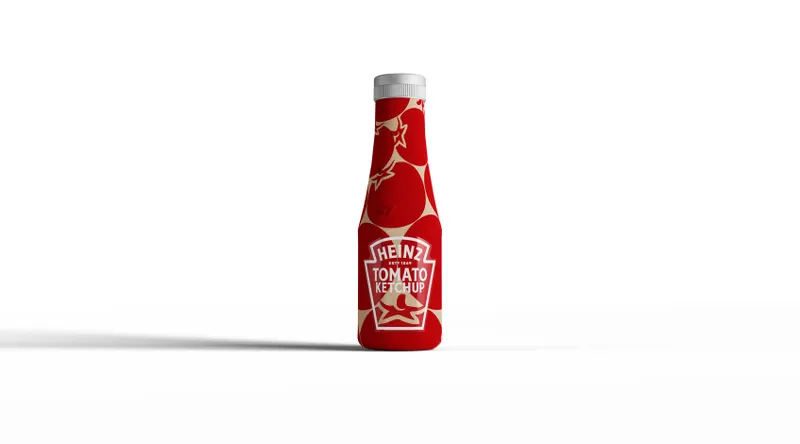

Heinz is ready to move on from squeezable plastic bottles into the “Ketchup Bottle of Tomorrow” — a bottle made entirely of sustainably sourced wood pulp.
The company announced its partnership with Pulpex to develop a paper bottle for Heinz ketchup. The new bottles will be paper-based, renewable, and recyclable and sourced from sustainable materials, according to a Heinz press release.
The paper bottles are said to be a step toward Kraft Heinz’s goals for sustainability, which include making all of its product packaging recyclable, reusable or compostable by 2025 and to reach net-zero emissions by 2050.
Not too long ago, Heinz relied primarily on glass, a material typically considered sustainable thanks to its reusability and recyclability, for its bottles. Why not revert back to glass in the efforts to get rid of plastic? The paper bottles have a 90% lower carbon footprint than glass and 30% lower than PET, on a bottle-by-bottle basis, as reported by CBS News. According to Pulpex, the bottles will be fully recyclable once approved for use in food packaging. If the bottles are thrown away, Pulpex noted that the material biodegrades.
It will still be some time before consumers see paper bottles of ketchup on grocery store shelves. For now, Heinz and Pulpex are developing a prototype for the ketchup bottle and determining how it could work for ketchup and other Heinz products. After the prototype stage, the bottle will be tested by the companies for performance, then tested by consumers, as explained by Food & Wine.
Pulpex has previously developed a paper bottle for Johnnie Walker, a whiskey brand, and is working with other major labels like PepsiCo and Estée Lauder Companies to create more sustainable packaging for their products.
Heinz’s ketchup will be the first sauce in paper packaging, although other food brands are moving toward packaging options that are more environmentally friendly, especially compared to plastic. Alter Eco chocolates are packaged in compostable wrappers, Boxed Water packages water in a recyclable box made primarily of plant-based materials, and Don Maslow Coffee uses compostable bags for its coffee.
While these efforts and overarching sustainable goals are a start, national climate pledges and corporate plans are still not enough to meet the goal to limit global warming to less than 1.5°C. In fact, UN Secretary-General Antonio Guterres has warned that global emissions must be cut by 45% by 2030, while current pledges by world countries would actually see a 14% increase in emissions.

 233k
233k  41k
41k  Subscribe
Subscribe 